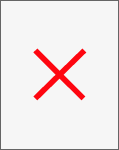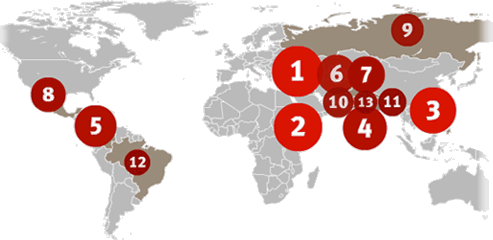In provincial areas where law enforcement is weak, reporters were vulnerable to attack for their coverage of corruption. In urban centers, journalists faced risks while covering organized crime and drug trafficking. Two journalists were killed in direct relation to their work in 2011, and CPJ was investigating the circumstances in four other killings. The uptick in deadly violence pushed Brazil back onto CPJ’s 2011 Impunity Index, which highlights countries with unsolved journalist murders. Politicized judicial rulings continued to hinder coverage of sensitive issues. A censorship order against the daily O Estado de S. Paulo remained in place more than two years after it was first imposed, barring the paper from reporting on a corruption inquiry involving the family of Senate President José Sarney. In November, President Dilma Rousseff signed into law an access-to-information measure that regulated the classification of documents and imposed a maximum withholding period of 50 years for top secret files. The bill was lauded as an important step for government transparency and a helpful tool for journalists covering corruption.
Brazil
» Lethal violence against provincial journalists covering corruption is unrelenting.
» Judicial censorship continues to restrict coverage on issues of public interest.
In provincial areas where law enforcement is weak, reporters were vulnerable to attack for their coverage of corruption. In urban centers, journalists faced risks while covering organized crime and drug trafficking. Two journalists were killed in direct relation to their work in 2011, and CPJ was investigating the circumstances in four other killings. The uptick in deadly violence pushed Brazil back onto CPJ’s 2011 Impunity Index, which highlights countries with unsolved journalist murders. Politicized judicial rulings continued to hinder coverage of sensitive issues. A censorship order against the daily O Estado de S. Paulo remained in place more than two years after it was first imposed, barring the paper from reporting on a corruption inquiry involving the family of Senate President José Sarney. In November, President Dilma Rousseff signed into law an access-to-information measure that regulated the classification of documents and imposed a maximum withholding period of 50 years for top secret files. The bill was lauded as an important step for government transparency and a helpful tool for journalists covering corruption.
-
224
Online removal demands -
2
Killed in 2011, motive confirmed -
19
Killed since 1992 -
2.5
Years of censorship order -
12th
Impunity Index ranking
In the first half of 2011, Brazilian authorities issued 224 takedown orders to Google, more than any other country in the world. In August, a judge in the state of Ceará froze US$130,000 in Google's domestic bank accounts for noncompliance with a takedown order of anonymous blog posts that accused a local mayor of corruption.

Countries with the most takedown demands, January-June 2011:
1. Brazil (224)
2. Germany (125)
3. United States (92)
4. South Korea (88)
5. Taiwan (69)
Newspaper publisher Edinaldo Filgueira was gunned down on June 15 after running a poll on his blog that reflected dissatisfaction with the local government, CPJ research found.
Television cameraman Gelson Domingos da Silva was shot and killed November 6 while covering a confrontation between state police and suspected drug traffickers in Rio de Janeiro.
Nonfatal attacks against journalists in 2011:
1: Journalist attacked by gunman.
2: Drive-by shootings of journalists' cars and homes during one week in October, according to the Inter American Press Association.
The Brazilian press has faced persistent violence over two decades, CPJ research shows. The 19 work-related fatalities in that period make Brazil the third deadliest country in the Americas, behind only Colombia and Mexico.
Coverage of government corruption has been particularly dangerous in Brazil.
56 percent
Suspected to have been committed by government officials.68 percent
Victims who covered government corruption.44 percent
Victims who were threatened beforehand.The court order against the São Paulo daily O Estado de S. Paulo, imposed in July 2009, forbid the paper from reporting on the Sarney investigation. Judicial censorship has been a widespread problem in Brazil, CPJ research shows.
More on Brazilian censorship:
6: Cases of judicial censorship in a six-month period in 2011, according to the Inter American Press Association, or IAPA.
US$1,700: Fine placed against Radio Cultura for every report it aired on a construction company accused of corruption, according to IAPA.
CPJ's Impunity Index found that Brazil is the world's 12th worst nation in combating deadly anti-press violence, with five unsolved murders over the past decade.

| 1. Iraq 2. Somalia 3. Philippines 4. Sri Lanka | 5. Colombia 6. Afghanistan 7. Nepal 8. Mexico | 9. Russia 10. Pakistan 11. Bangladesh 12. Brazil | 13. India |
